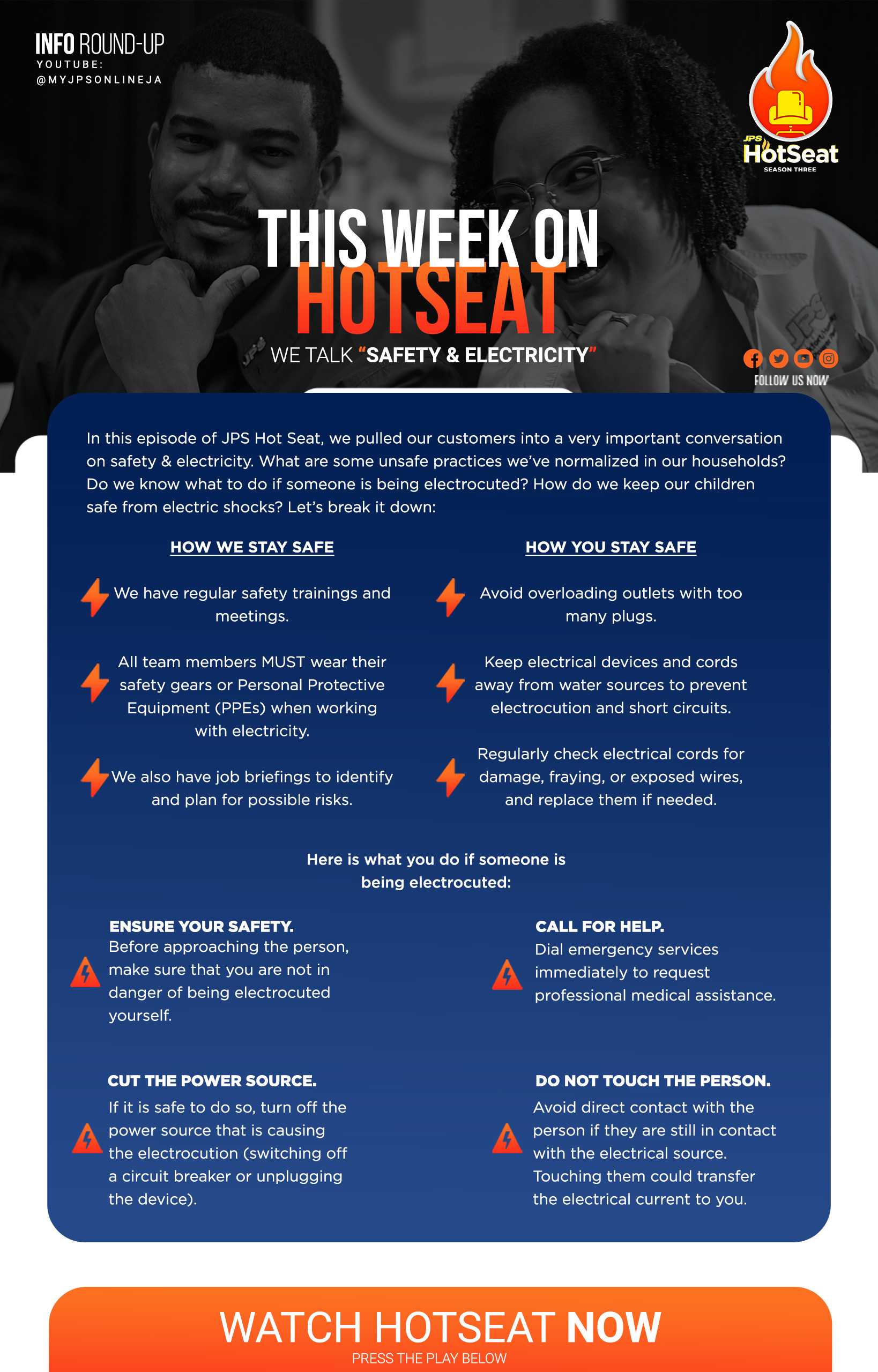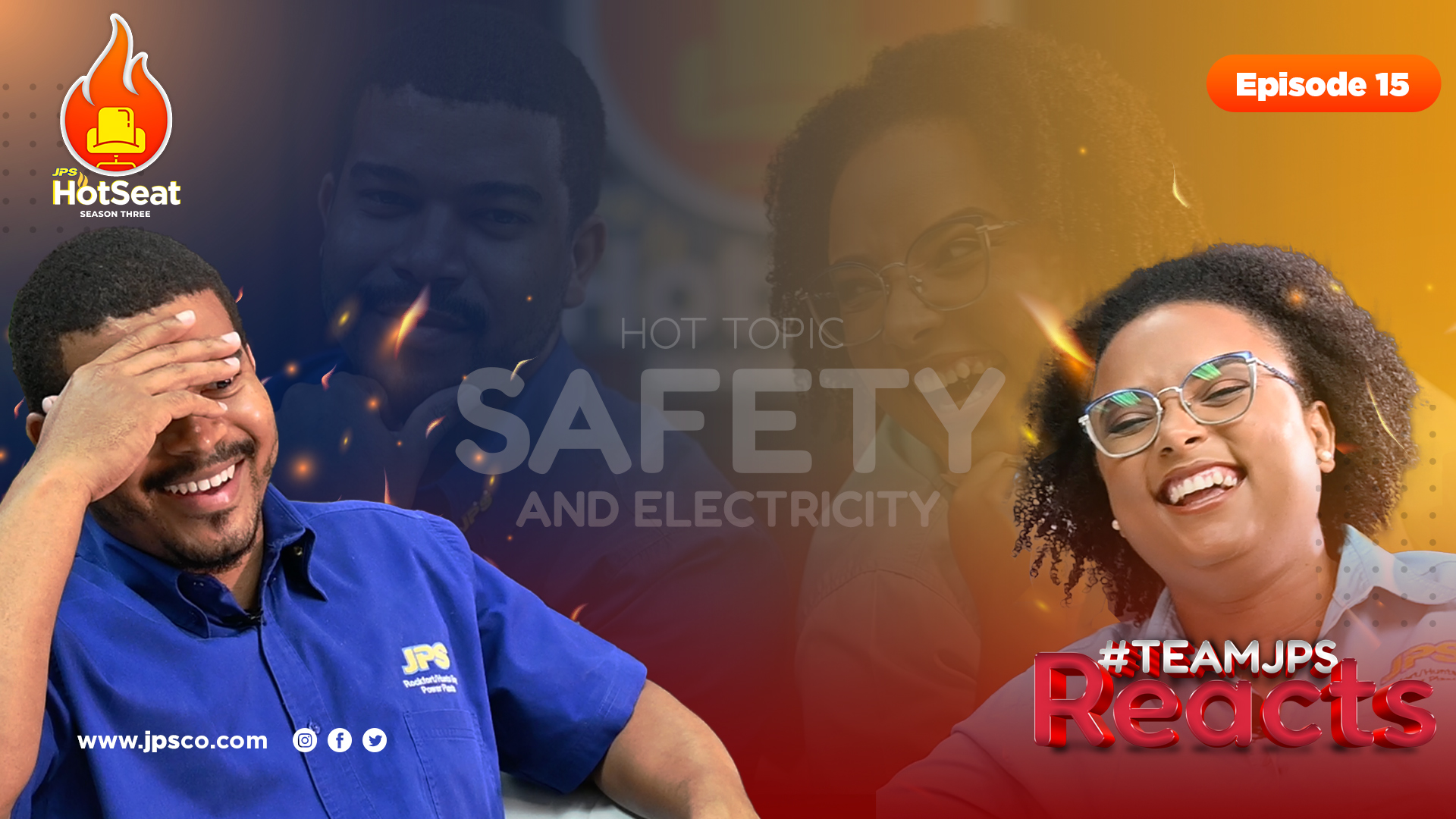
JPS HOT SEAT - Safety & Electricity
Safety and electricity is a BIG deal! We put a few of our customers in the Hot Seat for this episode and we were SHOCKED (no pun intended) Tune in to hear their stories and see our reaction.
Electrical safety for Customers
Your safety is important to us. With great power comes great responsibility.
Follow our simple electrical safety tips to keep yourself and your family safe at home.
-
Cut off the electricity.
If the device that is causing the electrical fire is found, and you can reach the cord and outlet safely, unplug it or turn off the circuit breaker.
-
Use a Type C Fire extinguisher or Baking Soda
If you don’t have a fire extinguisher, you may use baking soda to smother and extinguish an electrical fire.
-
Don’t use water to put it out
Water is a natural conductor of electricity and if you throw water on an electrical fire, you can get shocked or electrocuted.
Also, water may enable to fire to spread by conducting electricity throughout the room and potentially igniting flammable materials.
-
Use a Fire Blanket or Heavy Item of Clothing to Put Out Small Fires
Fire blankets are suited for small fires, but if one is not on hand, a dense blanket or item of clothing will work. These also smother the flames, but it’s essential to be precise when using any materials – the wrong move could fan flames, making the problem worse.
It’s essential to practice caution when using any materials to smother a fire.
What are some causes of electrical fires?
1. FAULTY SOCKETS & OUTLETS
Most electrical fires are caused by faulty electrical outlets or worn out sockets that aren’t properly grounded. With age, the wiring behind sockets and outlets wears, the wires loosen over time and can eventually break and cause a fire.
2. LIGHT FIXTURES & FITTINGS
Another common cause of electrical fires are lamps, lightbulbs and light fittings. It’s important to follow the wattage guidelines for all light fixtures and lamps in your home and to never exceed the recommended amount. If a light bulb with too high a wattage is used a fire can start.
Placing materials such as cloth or paper over lamp shades can also cause a fire to start as the material can heat up and ignite. As a result, lamps and lampshades should never be covered.
3. EXTENSION LEADS
When large numbers of appliances are plugged into extension leads this can create an excessive power load on a single socket which it may not be able to handle.
Where possible, appliances should always be plugged directly into an outlet or if it’s necessary to use an extension lead, they should be used as a temporary measure.
If there aren’t enough outlets in your home to accommodate your needs, then an electrician can install additional outlets.
4. OUTDATED WIRING
Wiring in older homes often isn’t up to handling the increased demands and numbers of electrical appliances the average home now has. Usually, breakers are triggered when a circuit is overloaded with too much electricity, but old breaker boxes may have worn connectors that don’t work which can cause the system to overload and catch fire.
5. OLD OR FAULTY APPLIANCES
Similar to outdated wiring, using old or dated appliances can be a fire hazard as they may not be up to standard when it comes to wattage usage, material quality and safety regulations.
Old and well used appliances may have a worn cord which can send heat onto combustible surfaces like floors, curtains and rugs which can start a fire.
The grounding plug should also never be removed from a cord so that it can be used in a two-prong electrical outlet.
